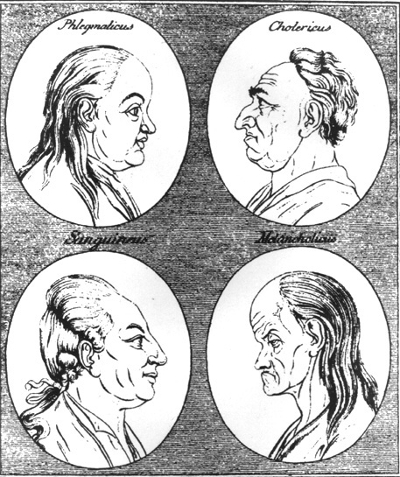A-Z: General definitions
- T.S. Eliot
- Tabernacle
- Tablets of the Law
- Taboo
- Tale
- Talisman
- Talmud
- Tantalus
- Tarquinius Superbus
- Tartarus
- Tautology
- Tax-collector
- Te Deum
- Teachers of the law
- Technical lexis
- Teiresias
- Telemachus
- Temperament
- Temperance
- Templar
- Temple
- Temple of Vesta
- Tempo Rubato
- Temporal
- Tempt
- Temptation
- Tempter
- Ten Commandments
- Tense
- Tent of Meeting
- Tercet
- Terence
- Tertullian
- Terza Rima
A-Z: General definitions: Temperament
Definition
In ancient and medieval psychology, there were four basic temperaments or humours, which, it was believed, originated in four different organs of the body. These were melancholic (the spleen), sanguine (the liver), choleric (the gall bladder) and phlegmatic (brain or lungs). Dramatic characterisation was often based on stereotypes of the personality traits that the four humours represented. See Spleen.

Belonging to the Middle Ages.
A fixed, often conventional and unoriginal pattern of thought or expression or way of doing things. Characters lacking in originality who behave predictably or according to type.
In medieval medicine, the spleen was seen as a source of a particular humour or temperament which came to be associated with melancholy or depression according to the psychology of the day.